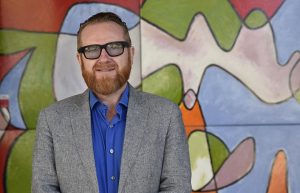
Self-care is understood to be a critical issue in optimising public health interventions, improving community health, and aiding care access for those living with chronic disease.
A global summit, made possible by a WUN grant, has identified priorities for self-care research. It involved participants from multiple academic disciplines and sectors, in four continents. [1]
They considered the impacts of self-care on recovery and prevention of non-communicable diseases[2], which disproportionately affect[3] people in low- and middle-income countries; and quality of life. Many participants are now collaborating on the world’s first cohort study into the effectiveness of self-care on rehabilitation and quality of life among stroke survivors.
What is self-care?
The World Health Organization (WHO) defines self-care as “the ability of individuals, families and communities to promote their own health, prevent disease, maintain health, and to cope with illness and disability with or without the support of a health worker.”
Evidence-based, cost-effective self-care interventions include making some contraceptive products, pregnancy tests, condoms and lubricants available over-the-counter; HPV and STI self-sampling and HIV self-tests; and self-monitoring of blood pressure and blood glucose.
 Distinguished Professor Jon Adams of the School of Public Health at the University of Technology Sydney, Australia is lead researcher of the WUN project team[4]. He says self-care is “practised world-wide in every society, without necessarily being called ‘self-care’” and is “not equivalent to the wellness industry nor a substitute for other elements of health care.”
Distinguished Professor Jon Adams of the School of Public Health at the University of Technology Sydney, Australia is lead researcher of the WUN project team[4]. He says self-care is “practised world-wide in every society, without necessarily being called ‘self-care’” and is “not equivalent to the wellness industry nor a substitute for other elements of health care.”The summit focused on the practical application of self-care and clarified key research priorities, which include:
- a need to articulate a broad life-course and whole-of-life approach to investigating and influencing self, including focus upon individuals, families, local contexts and the global community,
- and which draws on transdisciplinary work to incorporate the biological, physical and mental health as well as attentional health, spiritual health, belonging, purpose and meaning.
Such an approach helps to contribute further to supporting those living with chronic illness, notes Adams, and helps strengthen both primary and secondary prevention for the wider community and populations.
Summit participants want to strengthen understanding of the complexities around self-care through continued investigation. They will launch an International Academy for Self-Care Research (IASCR) to continue the rigorous, practically focused partnership work begun on the project. It will co-design and partner with stakeholders to “help inform innovative solutions to the challenges of self-care and to shape the very essence of self-care philosophy and best practice for generations to come,” Adams says.
Adams and other research team members will engage with researchers in AI and digital health to support a systematic, coordinated approach to self-care. They will also seek to address inequities in accessing self-care through a focus upon practice, policy, strategies and initiatives that address self-care capabilities, self-care and wider health literacy challenges and other difficulties often faced by those marginalised by formal health systems and infrastructure.
“People have unequal access to the diverse resources which encompass self-care,” says Adams. “Policymakers, practitioners and stakeholders must recognise this and work out how to give healthcare systems and communities wider and more equitable access to the opportunities it offers.”
Project researchers emphasised self-care is a foreground and background issue and must involve academics, healthcare professionals, people in public health and policymakers.
Adams invites people to join discussions, hear more about the research and get involved in this systematic approach: “Self-care needs to be a fundamental focus for public health and health and wellbeing research moving forward.”
What next?
- A paper based on this WUN project is under review. We will update this link when it is published. Researchers are planning other publications including a book.
- Contact Professor Jon Adams: jon.adams@uts.edu.au
- Sign up to the WUN newsletter to get the latest stories about our members’ research, three times per year.
[1] Academics from Australia, Brazil, Canada, Denmark, Hong Kong, Thailand and the United Kingdom participated alongside international self-care stakeholders, the World Health Organisation, the International Pharmaceutical Federation, the Personalised Care Institute, the Royal College of General Practitioners, Innovate UK and the British Medical Journal.
[2] NCDs include cancers, strokes, cardiovascular disease, diabetes and chronic lung illnesses. They kill 41 million people each year, equivalent to 74% of all deaths globally.
[3] World Health Organization factsheet, 16 September 2023.
[4] The WUN ‘Identifying a global health/public health research agenda for self-care in chronic disease’ group includes members from the University of Alberta, Mahidol University, the University of Southampton, the University of Technology Sydney and The Chinese University of Hong Kong as well as external partners. For more information, see their WUN page.